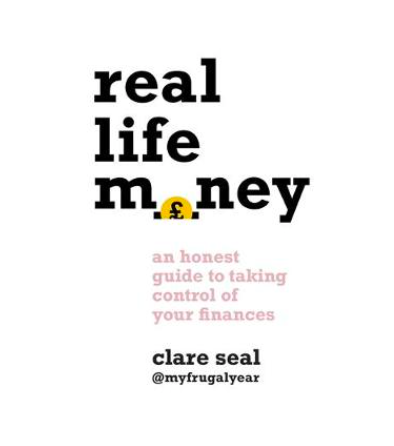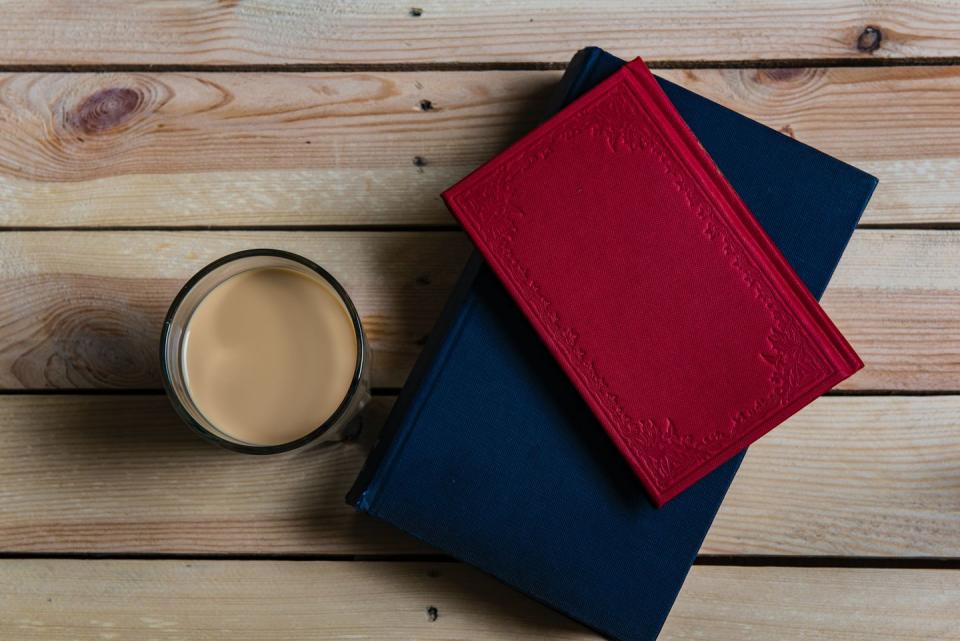'Why I told Instagram I was £27,000 in debt'

Last year, Clare Seal and her husband came to breaking point with mounting debt. Now, she shares how they have already paid off £10,000 and are taking back control of their finances...
On 14 March 2019, I sat down and typed the words ‘25k of credit card debt, 2k of overdraft, £0 accessible savings’ and posted them on Instagram under an anonymous account I called @myfrugalyear. It was the first time I’d admitted to myself, let alone anyone else, just how much debt my husband, Phil, and I had.
I’ve never had a healthy relationship with money. When I started working 10 years ago, I was earning 16k a year in a hospitality job, doing 60 hours a week, and felt I deserved to treat myself to whatever I wanted because I was working so hard. My rent was almost half my monthly salary, and I was spending the rest with reckless abandon, mostly to impress people or as a quick fix when I felt sad, bored or anxious.
You see the house renovation, the capsule wardrobe – in real life and online – and it can make you feel like you need to have all of those things to feel adequate and complete.
I got into a cycle of using payday loans with astronomical interest rates, promising myself each time that this was the very last one I’d take out.
Phil and I met at university, and got together four years later. He worked in hospitality, too, and was on a similarly low salary. We stumbled through the years that followed, always saved just in the nick of time by a new job with better pay, or a bonus, or a family bailout.

By then, I was working in marketing for an interiors company and earned around £30,000. After a Pinterest-perfect wedding (we put 12k of the cost on our credit card), two children and four house moves in five years, things started to spiral out of my control.
It all came to head last March, two weeks before payday, when the bank called to say I’d exceeded my £2,000 unarranged overdraft limit and when were we going to be able to pay it back?
I felt ashamed and angry with myself for getting into this situation. It was a horrible feeling. Over the next few days, Phil and I mustered the courage to check all our balances and write everything down. We made a spreadsheet with our income and all our fixed outgoings.
A post shared by Clare Seal (@myfrugalyear) on Sep 18, 2020 at 6:06am PDT
It was suddenly easy to see where we were haemorrhaging money: all the meals
out, takeaways, bits for the house. We started by cutting out things we wouldn’t miss, such as subscriptions that had run on (like my gym membership), and made a vow not to buy anything non-essential on our credit cards.
If we could afford to buy something with cash that was fine, otherwise we couldn’t have it. We didn’t want to deny ourselves completely. I knew crash budgeting wouldn’t be sustainable long-term; eventually we’d fall off the wagon and feel even worse.
Debt help: How Clare got started reducing her debt and paid off £10,000 in 12 months
Debt help: Face up to your debt
Getting a complete picture of your debts is, unfortunately, a necessary step. Check the balance of all your accounts and credit cards and write it all down. I’d recommend downloading an app where you can see all your accounts in one place, such as Money Dashboard. Remember this is fixable. You have all the information now.
Debt help: Talk to someone about your debt
It’s very difficult to deal with debt on your own, keeping everything a secret. Talk to someone: it could be a trusted friend or family member or an organisation such as StepChange (stepchange.org; 0800 138 1111) or the National Debtline (nationaldebtline.org; 0808 808 4000).
They are there to answer your questions, help you build a budget and do things like arrange a debt management plan. You can also just confide in them; they’re completely judgement-free.
Debt help: Talk to your bank and creditors
It takes courage to pick up the phone but the sooner you feel ready to have those conversations, the sooner you’ll know what help is available to you. They may be able to offer financial advice, reduce your interest rate or refund fees and charges.
Debt help: Make a budget that works for you
We need to stop thinking of a budget as being something that exists to restrict us and think of it as our own personal plan for staying in control of our finances.
The most life-changing part of looking back over my income and outgoings over the past year was exposing a fundamental flaw in my budgeting technique: I would round income up and outgoings down. Those little discrepancies every month add up over time.
Setting yourself a budget is not revolutionary, but it’s the thing that’s made the biggest difference.I do mine in a simple spreadsheet that lists our incomes and fixed outgoings, such as rent and bills. Then I know exactly how much we have for other expenses.
A post shared by Clare Seal (@myfrugalyear) on Jul 31, 2020 at 5:30am PDT
Debt help: Separate your sense of self-worth from your debt
Change your language from ‘I’m in debt,’ which makes it sound like you’re at the bottom of a very deep hole, to ‘I have debt’, the same way you would say you ‘have’ a mortgage. It’s still yours to sort out, but it just removes that sense of self-loathing.
Debt help: Be kind to yourself
Remind yourself what you got right in life. You might have made a mess of your finances, and you have to take responsibility for that and be accountable, but try and frame it in the context of everything you’ve got right.
For me, it’s my wonderful marriage and two children, some professional success and my great friends. When you’re feeling awful about things, or at a low point, it’s worth remembering that this is just one part of your life — and it’s always fixable.
A year-and-a-half on from that horrible day, we’ve paid off over £10,000. It’s a long, hard slog but we’ve kept at it. Obviously the coronavirus pandemic has had an impact on us, like it has for many people, but we’re on track to payoff the rest of our debt by the end of 2021.
My relationship with money has definitely changed. It didn’t happen overnight, but diminishing the shame I felt around having debt has completely transformed things for me.
If you’re so ashamed you can’t even pick up the phone to your bank to ask what options are available, or ask family for help if they’re able to provide it, that’s causing practical harm to your financial situation, not just your mental health.
Opening up anonymously on Instagram was the start. I was amazed by the reaction; within
six weeks I had 10,000 followers and now have over 57k. That community has helped and stopped me feeling like the only one who’s made those mistakes.

When I was at my lowest, I saw my financial difficulties as an extension of my identity – yet another thing about myself that I didn’t like. My debt was one of the weapons I used to punish myself when I was anxious, which fuelled my toxic spending habits.
Separating my financial situation from my self-worth has been freeing. For a long time, I couldn’t see a plan for the future that didn’t involve winning the lottery! Now, the clouds
have cleared and I can actually see the way forward.
Real Life Money by Clare Seal is out now. This article originally appeared in the September 2020 issue of Red.
Subscribe to Red now to get the magazine delivered to your door. Red's latest issue is out now and available for purchase online and via Readly or Apple News+.
Like this article? Sign up to our newsletter to get more articles like this delivered straight to your inbox.
You Might Also Like

 Yahoo News
Yahoo News 

